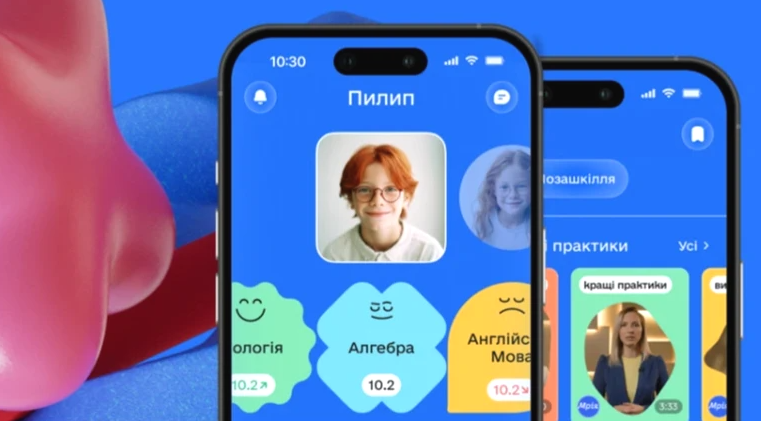Data Security in the 'Mria' App: New Features Without Threats
The recent announcement of new features in the educational app "Mria" does not compromise the data security of teachers, students, and their parents.
The Ministry of Digital Policy assured in a comment to "UP. Life" that no third party has access to users' personal information.
Previously, social media users expressed concerns about data security, pointing out the provisions of Cabinet Resolution No. 177, which regulates the app's operation. The document states that "economic entities" and informational systems may be "connected" to it.
In the Ministry's explanation: this concerns the partners of "Mria" with whom collaboration occurs within specified limits, as well as educational systems that can be technically integrated into the app.
These partners:
- provide materials for the content library;
- are involved in a rewards program where students can earn tickets to various events as an incentive for learning.
However, partners do not have access to personal data or the administrative part of the system, emphasized the Ministry.
"Economic entities do not gain access to the app or its data. The resolution discusses the possibility of their technical integration – for instance, to display bonus information," they explained.
App developers noted that economic entities undergo verification before joining the educational app, and their integration occurs solely through official procedures, complying with information security standards.
"No third party has access to the personal data of teachers, students, or their parents (guardians)," the agency clarified.
They also added that authorization in the app via BankID or "Diia" does not pose a risk of personal data leakage, as this information is neither stored nor transmitted upon entering the app – such capability is not technically or legally possible.
"All components of the 'Mria' ecosystem are created in accordance with current legislation and with respect for users' personal data protection principles," they concluded.
As a reminder, testing of the educational app in the first 40 schools will begin in 2024. In September of that year, the beta version of "Mria" is expected to be available.
In the app, students receive ID cards, can complete educational tasks, view educational content, and plan their day.
Thanks to the app, educators can create electronic lesson plans, fill in journals, grade students, and mark their attendance.
Furthermore, the platform offers functions for parents to check their children's academic performance, homework, and schedules.
